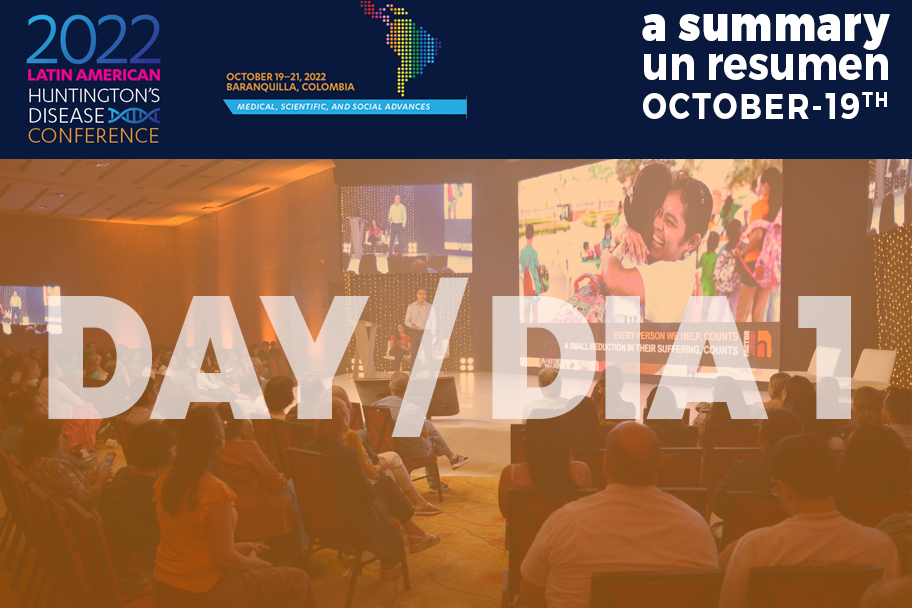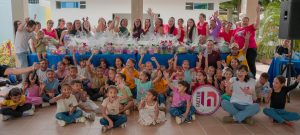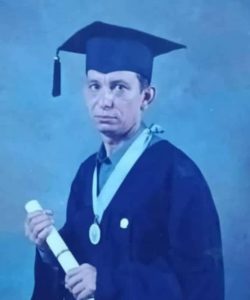October 19th. Saul arrived a day late from Panamá, after having missed his flight, and being unable to bring his mother, who suffers from HD to the conference, unfortunately, she did not have her papers in order on time. Saul had never been on a plane before or left his country. A few months ago, “he wrote me an email asking for help”, recalls Ignacio Muñoz-Sanjuan (Nacho), Factor-h President and Founder. He did not know anyone with HD outside his family, and his doctor had told him there was little he could do for his mother. “I connected him with Dr. Pedro Chaná, a leading movement disorder neurologist from Chile -explains, Nacho-, and then, invited him to come to Barranquilla, where he could meet the largest gathering of HD specialists in Latin America”.
Saul’s story exemplifies why the work of Factor-H is so important, even in regions where the organization does not have a presence on the ground. Saul arrived on the morning of the 21st, and I immediately greeted him and introduced him to people who were eager to listen to his story and to help. Saul became emotional and was ecstatic to meet so many people working with and for HD families, and by the time he returned home to Panamá, he said to me: “nothing will be the same for me, for my family, or for my country after coming here”. He found a system of support, trained individuals who cared to help him and became instant friends, and a strengthened desire to help not only his family but anyone in Panamá with HD that needs his assistance.
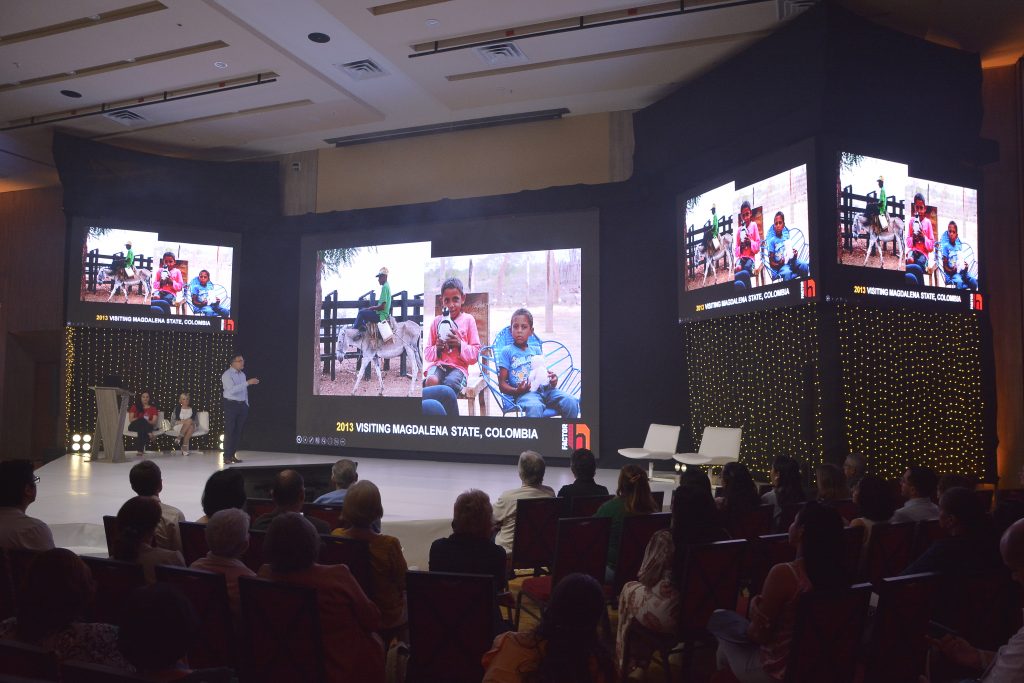
The 2022 Factor-H HD Latin American conference was held, not only to bring knowledge from leading scientists in the field but, to a great extent, to provide a forum for the types of connections – human connections- that can extend well beyond the gathering of experts during a few days.
Associations
On October 19th, first time in the morning, we initiated a conversation between representatives of the associations from many Latin American countries, including Mexico, Costa Rica, Panama, Colombia, Venezuela, Perú, Brazil, Argentina, and Chile. We spent a whole day discussing the work the associations lead in their countries, and jointly defining areas for collaboration. In most countries, the associations’ representatives’ comments indicated that we have a lot of work to do and that a collective strategy might be needed to improve access to care, enable access to information for health professionals and families alike, and support HD families from a social perspective. Several areas were highlighted – physician education, lack of access to health, lack of educational guides in Spanish for families, lack of cohesiveness within countries, where several organizations exist and do not cooperate, and the inability to reach many families living outside the countries’ capital cities, who lack access to professionals and social support.
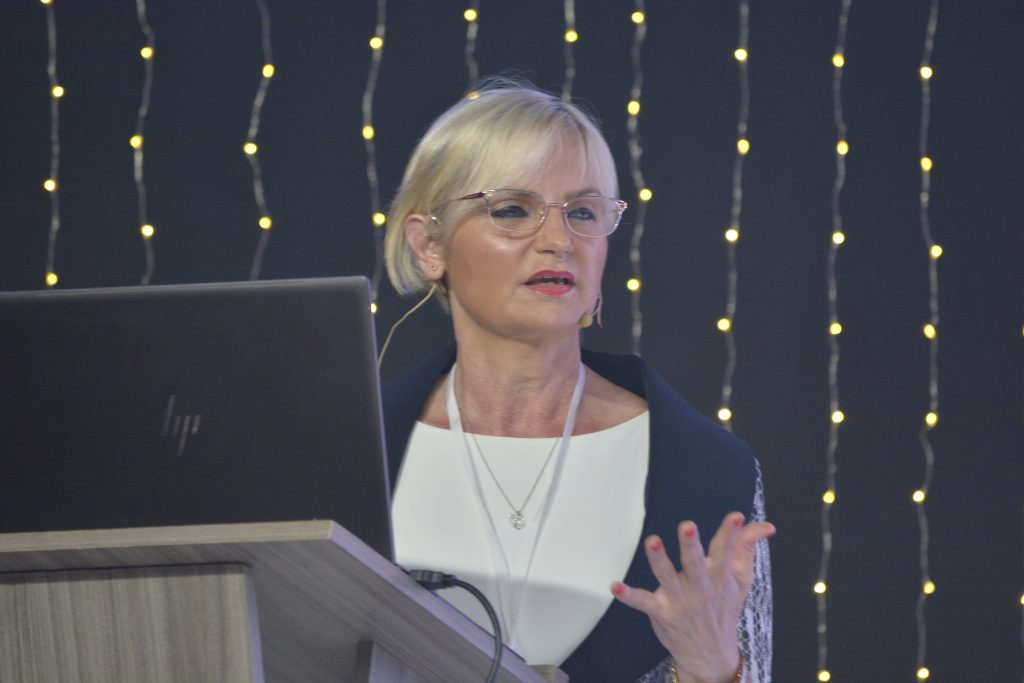
Educational Workshops
A parallel session, coordinated by Dr. Roger Cachope, from Factor-H, with professionals from the Metropolitan University of Barranquilla, University of Antioquia, University of Virginia, Center on Movement Disorders – Chile, and City University of New York held a series of day-long educational workshops for caregivers – with practical advice for caring for patients at all stages of the disease process. Techniques for improving care at home, feeding, avoiding bed sores, and improving communication between caregivers and patients, and between family members. There were also speech therapy and mobility exercises including dance techniques, taught virtually by our friend Dr. Greg Youdan from New York. With participation from volunteers from Universidad Metropolitana, led by Carmen Verdano, and with the help of Dr. Sonia Moreno, a neuropsychologist from Medellín, more than 100 caregivers, and family members attended the workshops and benefited from the courses. It was the first time we conducted this type of practical workshop, and we will replicate them elsewhere.
Leading HD physicians from Latin America
A final session included a meeting of leading HD physicians from Latin America, as part of Factor-H efforts to generate an evidence-based clinical consensus for the continent, following the GRADE methodology. The meeting was chaired by Dr. Claudia Perandones, a leading clinical geneticist from Argentina. The process to generate evidence-based criteria for optimal HD symptomatic treatments, suitable for Latin America, started in December of 2020, in a program financed by Roche. The importance of this work cannot be understated, as access to optimized treatments for the various symptoms of HD is lacking. The output of this project will include key publications, which can be issued to recommend changes in national health plans and improve access, via each country’s national health plans, to better manage the symptoms of HD.
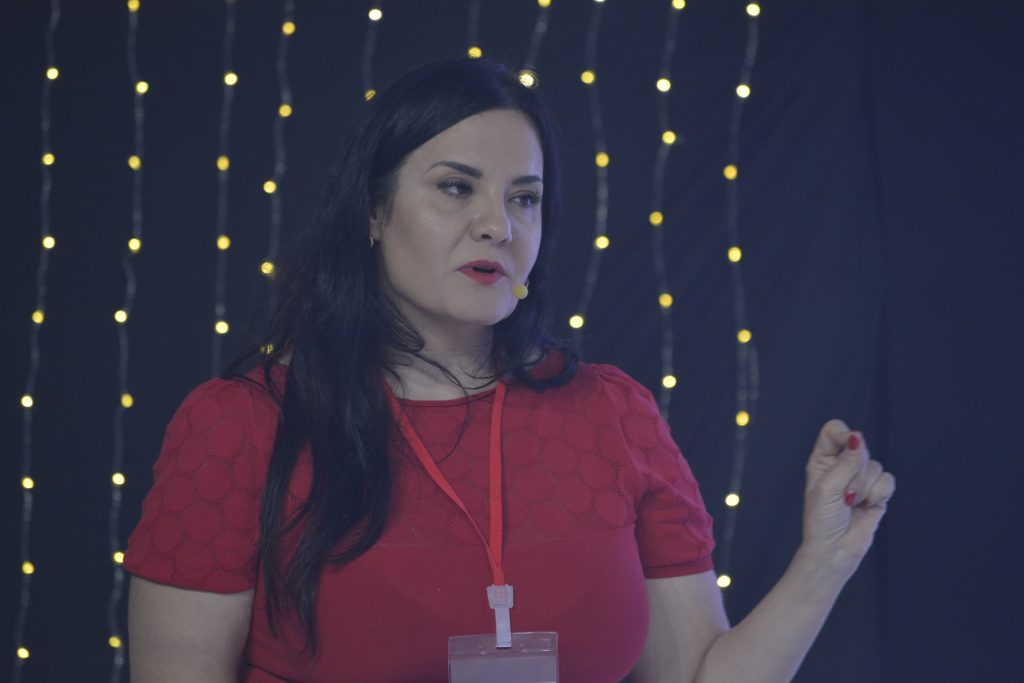
Muñoz-Sanjuán, Perandones and Capodaca
In the late afternoon of October 19th, the conference opened with three speakers – Ignacio Muñoz-Sanjuán spoke about the vision of Factor-H, a brief chronology of the evolution of the organization since its inception 10 years ago, and a description of the work we carry out in four areas of work – health management, youth, community development, and data collection. You can see a recording of his presentation here.
Next, Claudia Perandones spoke about the various clusters of the disease in Latin America and summarized the major contributions of these communities to the advancement of HD research and disease understanding. You can see a recording of her conference here.
Finally, Selene Capodarca from the Enroll-HD team described the platform and longitudinal studies with more than 30,000 participants in this worldwide program managed by CHDI Foundation. Enroll-HD also started 10 years ago, and the Factor-H meeting became a celebration of this program’s achievements. Several Latin American HD clinical centers of excellence from Chile, Argentina, Colombia, and Perú are now part of this effort, which will facilitate improved care for patients, and their participation in clinical studies.

